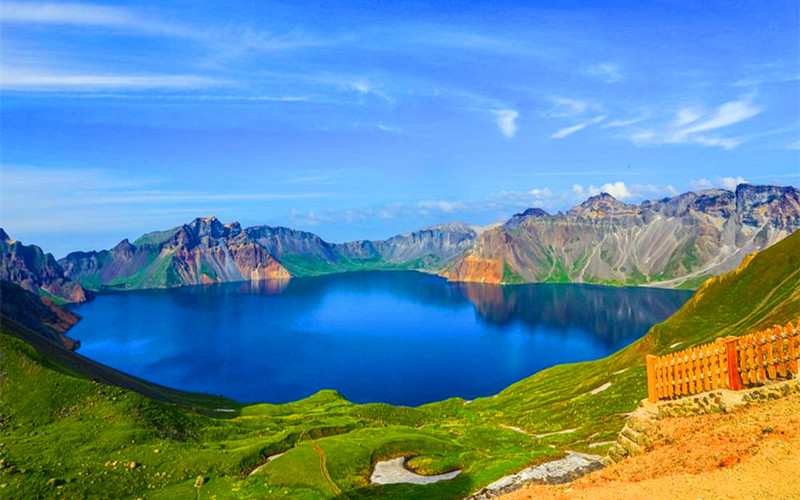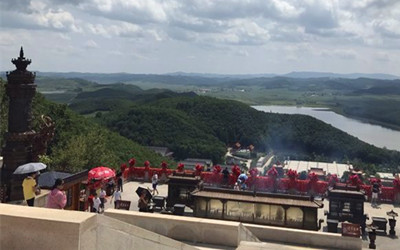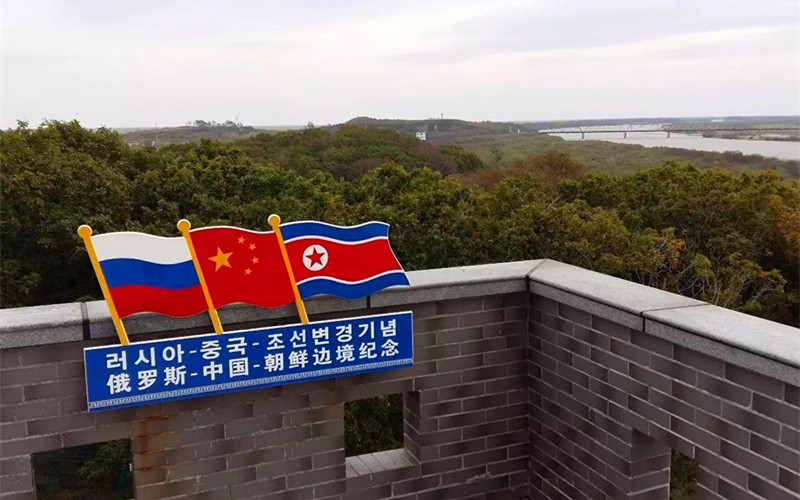Skype: neodalle-travel
Tel: +86 135 7447 2266
E-mail: sales@visitaroundchina.com
Yanbian Korean autonomous prefecture is under provincial jurisdiction and is the home of the Korean ethnic group. It is in eastern Jilin, close to Russia and the DPRK, so it is an important site for foreign trade. It covers 43,474 square kilometers, a fourth of the province and has a population of 2.15 million, with 780,000 Koreans, or 36 percent of the population, and who have a high higher level of education than many other Chinese ethnic groups.
Yanbian Facts
English Name:Yanbian Korean Autonomous Prefecture
Chinese Name:c(延边朝鲜族自治州)
Location: in the northeastern area of Jilin Province, bordering Russian and North Korean on the east and south respectively.
Area: 43,474 Square kilometers
Population: 2.19 million
Nationalities: Han, Koreans, Manchu, Mongol and Hui, the capital city of which is Yanji,
Administrative: Yanbian Prefecture is divided into 6 cities(Yanji,Tumen,Huichun,Dunhua,Helong,Longjing) and 2 counties(Tuan).
The capital of the prefecture: Yanji City
What to see in Yanbian?
Yanbian is a renowned tourist zone. Changbai Mountain Natural Reserved Area, which was authored by UN as “Human and Ecosphere” ; the unique scenery of Tumen River Area, which extends as long as one thousand mileages, the scenery of border, the precious site of ancient Bohai Kingdom, and the social customs of Korea nationality attract and enchant a great number of tourists form all over the world.
 |
 |
|
| Mount Changbai | Ancient Bohai Kingdom Ruins | |
 |
 |
|
| Fangchuan Village in Yanbian | Yanbian Cloudland Platform |
When to visit Yanbian?
Under the interaction of high and low air pressure, the climate in Yanbian is characterized by moderate and humid feature. With the distinctive influence of monsoon, the spring in Yanji is dominated by dry and windy weather, whereas the rainfall is concentrated in summer and becomes less in autumn. Since it neighbors to the Sea of Japan, as well as being added with natural protections of the mountains standing in western and northern regions, which suggests a cooler summer and warmer winter compared with other parts of the province. Annual precipitation is about 400-650 mm. To cope with flooding in western regions, local residents have conducted a variety of measures in accordance with the instructions of the government.
How to reach Yanbian?
Airways- Yanji Airport, located in the southwest of Yanji, is an international medium-sized airport which includes direct flights to Seoul and Cheongju. It is also available for domestic use including direct lines to Beijing, Shanghai, Changchun, Guangzhou, Tianjin and so forth. In recent years, both passenger capacity and freight volume have been enlarged enormously.
Highways- There are up to 66 high lines within the prefecture, in which 2 main highways are extending from southwest to northeast that connect Changchun with Harbin. Dapuchaihe Highway is another line that provides direct trip from Yanji to Changbai Mountain.
Railways- Several rail lines have interlinked Yanji with Russia and the North Korea. One of main line running southward is available to southern regions including Shenyang, Dalian and Beijing; and another line running northward connects Ussuriysk and Siberian Railway.
Waterways- Huichun city is located in the intersection area of China, Russia and the North Korea, in the lower course of Tumen River, which is only 15 kilometers far from the Sea of Japan. 2 lines have been opened which enable lines to Port Sokcho via Port Rajin, and to Port Zarubino via Port Sokcho, which are also available to Port Niigata in Japan.
Yanbian Travel Tips
Yanbian is the largest region where Korean nationality lives in compact communities and one of the earliest areas implemented the system of regional autonomous prefecture of China. Nineteen nationalities live there such as Korea nationality, Han nationality, Man nationality, and Hui nationality etc, of which the ethnic minorities account for 43.9% of the total population.
The percentage of ethnic Koreans varies from city to city in the prefecture. Children can attend Korean language schools or Chinese Mandarin schools regardless of their ethnic background; there are for example Chinese Han children attending Korean schools and ethnic Korean children attending Chinese schools, though the prevalent case tends to be the other way round.
Yanbian is in the Changbai Mountains area and contains lumber, water resources, and minerals. It has a cultural heritage and tourism resources, notably its folk activities centered on Korean history and culture. Yanbian is fascinating to see the influence of Korean culture in Yanbian and how it mixes in harmoniously with mainstream Chinese culture. Signs in this prefecture are in Chinese and Korean and hearing people speak Korean in the street is absolutely normal.
There has been an increase of ethnic Korean Chinese going to South Korea to work and this has in turn somewhat influenced life in Yanbian with for example South Korean style coffee shops and a nightlife scene similar to that of South Korea being formed in the past years.
Unsurprisingly South Korean pop-culture is very popular amongst the younger generations, not only Chinese Korean but also Chinese Han, and this can be seen in the tv shows they follow, the way they dress and products they use. It is also common for South Korean artists to perform here.
There are also many businesses from North and South Korea in Yanbian. Several DPRK restaurants are extremely popular in the region and it is not uncommon to encounter South Koreans setting up their small businesses in this prefecture.
Yanji (延吉市 in Chinese,연길시 in Korean)- Capital of the Yanbian Korean Autonomous region. With just over 400,000 inhabitants, it is considered a small city in Chinese terms. However this city has two universities and an international airport with flights to Seoul and Pyongyang. Packed with Korean styled coffee shops, several North and South Korean restaurants and Korean being the mother tongue of a large percentage of the population, it is no surprise that Yanji has been nicked name "West Korea" or "mini-Korea"
 Ask Questions ?
Ask Questions ?